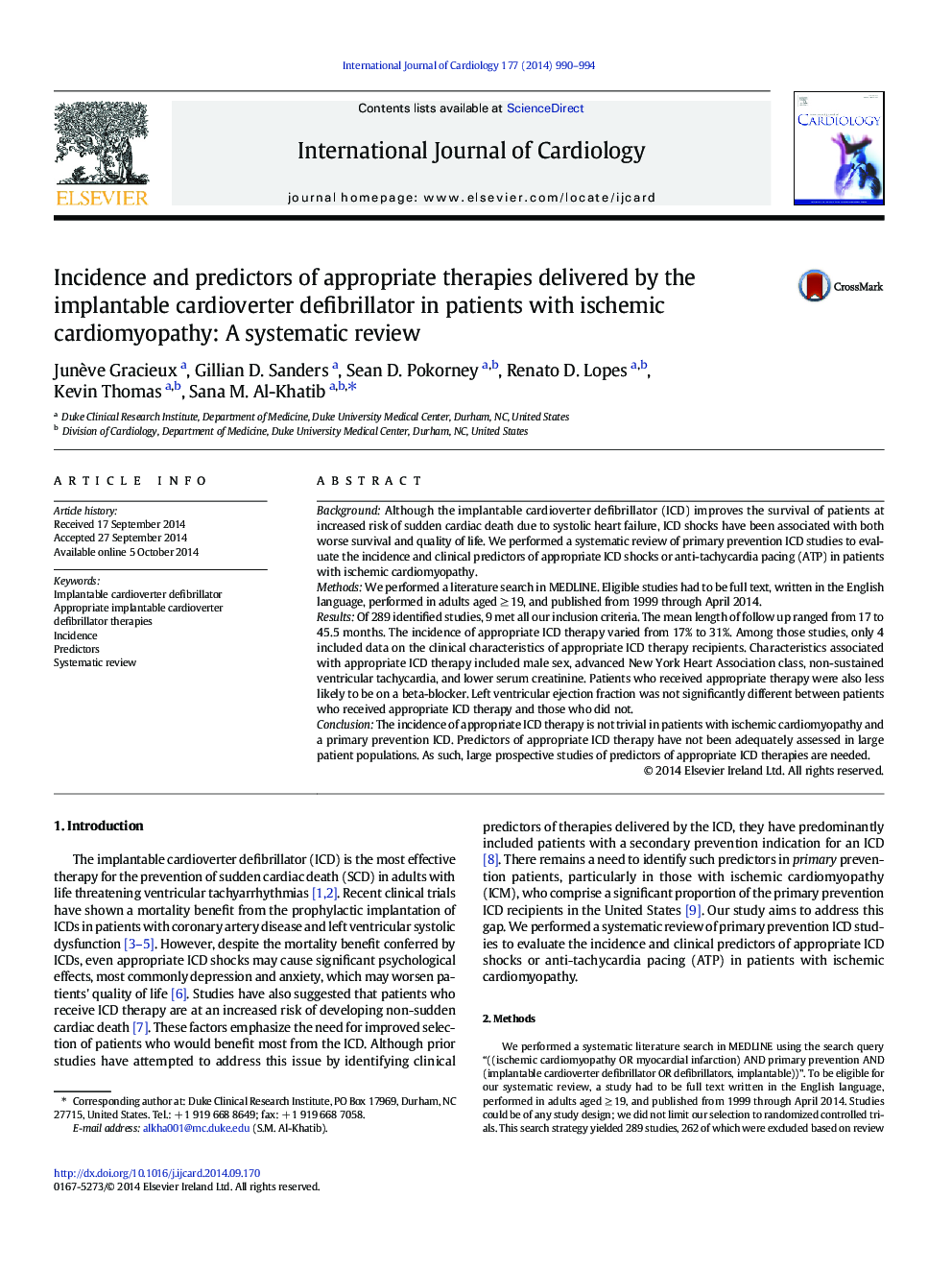| Article ID | Journal | Published Year | Pages | File Type |
|---|---|---|---|---|
| 5969558 | International Journal of Cardiology | 2014 | 5 Pages |
BackgroundAlthough the implantable cardioverter defibrillator (ICD) improves the survival of patients at increased risk of sudden cardiac death due to systolic heart failure, ICD shocks have been associated with both worse survival and quality of life. We performed a systematic review of primary prevention ICD studies to evaluate the incidence and clinical predictors of appropriate ICD shocks or anti-tachycardia pacing (ATP) in patients with ischemic cardiomyopathy.MethodsWe performed a literature search in MEDLINE. Eligible studies had to be full text, written in the English language, performed in adults aged â¥Â 19, and published from 1999 through April 2014.ResultsOf 289 identified studies, 9 met all our inclusion criteria. The mean length of follow up ranged from 17 to 45.5 months. The incidence of appropriate ICD therapy varied from 17% to 31%. Among those studies, only 4 included data on the clinical characteristics of appropriate ICD therapy recipients. Characteristics associated with appropriate ICD therapy included male sex, advanced New York Heart Association class, non-sustained ventricular tachycardia, and lower serum creatinine. Patients who received appropriate therapy were also less likely to be on a beta-blocker. Left ventricular ejection fraction was not significantly different between patients who received appropriate ICD therapy and those who did not.ConclusionThe incidence of appropriate ICD therapy is not trivial in patients with ischemic cardiomyopathy and a primary prevention ICD. Predictors of appropriate ICD therapy have not been adequately assessed in large patient populations. As such, large prospective studies of predictors of appropriate ICD therapies are needed.
